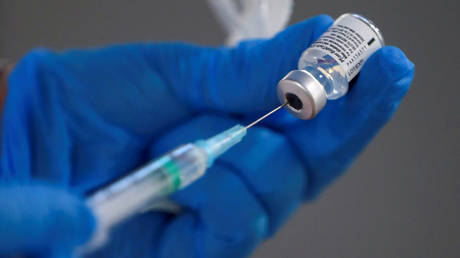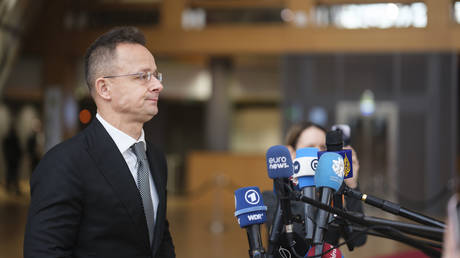
Canadian researchers have called for a delay in rolling out the second dose of the Pfizer jab, arguing a single one is enough to provide short-term protection, while a reduced dosage would allow many more people to be inoculated.
The idea was floated by two Canadian researchers in an open letter published in the New England Journal of Medicine on Wednesday.
After reviewing Pfizer’s test data, the researchers concluded the difference between the efficacy of a single shot of the vaccine and a two-dose one was negligible. While the full regimen of two doses showed an efficacy of 94.8 percent, a single dose stood at 92.6 percent.
Given the minute difference, governments should delay the rollout of the second dose of the Pfizer vaccine, striving to inject as many people as possible with a single dose instead, the researchers argued. At the same time, they admitted the dosage may impact the duration of the protection against Covid-19.
“With such a highly protective first dose, the benefits derived from a scarce supply of vaccine could be maximized by deferring second doses until all priority group members are offered at least one dose,” the letter reads.
Pfizer has responded to the letter by warning against such measures, as the single-dose regimen has not been evaluated thoroughly and needs further research.
“The decision to implement alternative dosing regimens resides with health authorities; however, we at Pfizer believe that it is critical for health authorities to conduct surveillance on implemented alternative dosing schedules to ensure that vaccines provide the maximum possible protection,” the company stated.
The new letter adds more scientific weight to the idea of reducing the vaccine dosage in favor of a wider rollout. Earlier this month, a non-peer-reviewed, pre-print study by researchers with the University of East Anglia (UEA) suggested the Pfizer vaccine was “highly protective” after three weeks following the first jab – and without the second one administered. The research, based on data collected during Israel’s mass vaccination campaign, put the single-dose efficacy rate at around 90 percent.
The idea of reduced dosage has been floated by some politicians, too. Late in December, for instance, Britain’s former PM Tony Blair argued there was a “strong case for not holding back the second doses of the vaccine,” and giving more people the first shot instead. Blair’s idea received a mixed response, with some scientists backing it up, while others argued such a move would be “too risky” given the lack of solid data on the efficacy of a reduced dosage.
Think your friends would be interested? Share this story!




